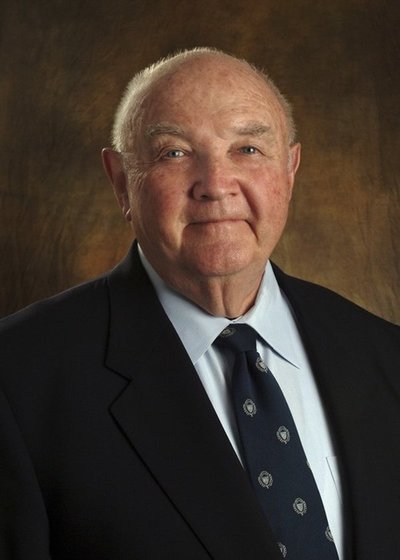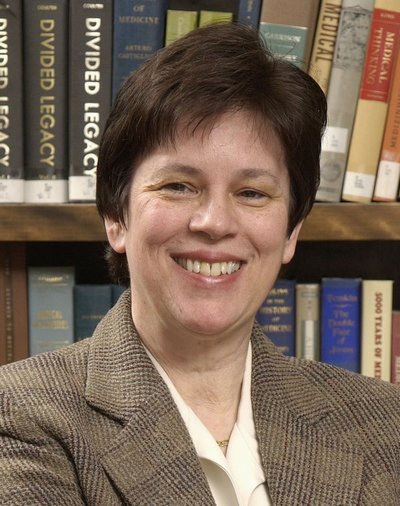May 3, 2007
Albert Jonsen set the standard for medical ethics
On Monday, May 7, Dr. Albert Jonsen, one of the world’s foremost authorities on medical ethics, will present the Department of Medical History and Ethic’s annual Charles W. Bodemer Lecture, The Wide World of Bioethics — Cultural Sensitivity and Moral Relativism. The lecture takes place at 3:30 p.m. in Turner Auditorium, Health Sciences Center. A reception immediately follows.
Jonsen, UW professor emeritus of medical history and ethics, is a philosopher who steeped himself in the study of medicine and set the standard for medical ethics in the United States.
“My first year at UCSF [University of California-San Francisco] I spent learning about medicine,” he said, “That’s not so hard to learn if you don’t have to treat and diagnose patients.
“By 1970, I was teaching philosophy and ethics to medical students at UC, San Francisco. It was only the second such course in the U.S. at the time,” Jonsen said, “When I was invited to the UW, the dean was interested in shifting from biomedical history to expanding and strengthening the department’s ethics program,” Jonsen said. “Due to Bodemer’s foresight, the UW got five state-funded faculty positions in the department. That was most unusual in the U.S. where most departments of ethics had volunteer faculty or had to raise grant money.”
Technological advances and shifting cultural values were significant catalysts in thrusting ethics from the background in medical education and cultural awareness to the foreground.
“Ethics is the analysis and study of morality — a set of standards that people maintain or not. Ethics is a way to understand how those standards are to be used. You can teach ethics but you can’t give a class on morality — that’s fashioned generation by generation and in each society.
“The real work of ethics is to foster discussion and understanding of values and moral principles and to surface certain principles that embody the ideals that a society has, such as compassion, justice. Ethics allows us to discover the kinds of principles that would allow us to proceed with research or clinical care and honor those values at the same time.”
Jonsen cites several seminal events that brought ethics to the fore:
“I say that bioethics began at the UW in 1960 when Dr. Belding Scribner, professor of nephrology, invented the arteriovenous shunt that made hemodialysis possible for end-stage kidney disease. That was the first genuinely life-sustaining technology.
“Of course, there were more candidates for the device than could be accommodated. So, a major moral question arose. A committee was established to select patients to receive the treatment, that is, to select them to live or to die.
“Over the years the question would be asked of many new technologies, including the ventilator, organ transplantation, prenatal diagnosis, and many others. Which patient should get life-saving but limited resources? Around the nation, those who explored this difficult question became known as bioethicists. We were a group of theologians, philosophers, physicians grappling with this enormous medical dilemma and its implications.
“The second event was the revelation that the U.S. Public Health Service had deprived syphilis treatment to 300 poor, uneducated men in Tuskegee, Alabama. They were part of a research experiment conducted by the health service. That news was published in 1971 in the middle of the Civil Rights Movement. What are the rights of research subjects?
“The lingering death of Karen Ann Quinlan who was in a coma for years and the family wanted to discontinue life support. What is the appropriate use of life-sustaining treatment? And, when is a person dead or alive? Who decides?”
Jonsen developed a set questions regarding medical indications (medical history, diagnosis, prognosis and treatment), patient preferences for treatment and right to choose, quality of life (prospects with or without treatment), and contextual features (family issues, religion, etc.). These questions are the core of Clinical Ethics, Jonsen’s book that has become the gold standard in medical ethics in the U.S. and abroad. “I developed this so health care professionals can get the facts of the case clear and argue about the priorities of one quadrant over another.”
As a result of bioethical debates, many advances have been made. Institutional Review Boards have been established to protect the rights of research subjects. Living wills and advance directives now guide end-of-life and palliative care decisions.
In the 1970s, molecular genetics was theoretical and speculative. Today it’s a revolution in medicine. When the government mapped the human genome project, it had to develop the Ethical Legal and Social Implications of Mapping the Human Genome. Jonsen has worked with scientists at the UW to develop the ethical implications of molecular genetics. The Department of Medical History and Ethics is currently headed by a specialist in genetics, Dr. Wiley Burke.
Ethical questions are raised with every scientific discovery, technological invention, and their applications. And, the issues have become much more complex as research is conducted and discoveries are applied more readily to the far reaches of the world.
“Today, we deal with research and health services in developing countries and in a global context,” Jonsen said. “We’re dealing with populations that may not understand our research or share our values. For example, while we value individual consent, in some cultures, it’s the chief, husband or family that must give consent.
“Then there are cultural customs to consider, such as in the case of genital mutilation. An ethicist would question: Is that custom right or wrong? Ethics attempts to make a moral judgment and defend it. It’s not enough to say cultures are different. Is this particular practice right regardless of how deeply the custom is ingrained? There are many cultural customs. How do we distinguish between cultural customs and right and wrong? Who are we to tell them that they are wrong?
“There’s also the possibility of doing research on people and exploiting people who are very likely not going to be the beneficiaries of the research,” Jonsen said. “There’s also the questioning of rationing in resource-poor countries. We’re just at the edge of working through these complex global issues.”
The UW Department of Medical History and Ethics is well-positioned to address emerging ethical issues spurred by medical and scientific discovery.
“Back then, we were mostly philosophers and theologians grappling with these issues. Now physicians and scientists are also deeply steeped in ethics. They have good educations, good backgrounds, and have developed deep interests in these issues. Wylie Burke represents a generation of physicians who have grown up in the world of bioethics.”
Wylie Burke, a physician geneticist and chair of the department since 2000, said Jonsen’s vision is reflected in the work of the Department of Medical History and Ethics today and in the work of the UW Center for Genomics and Healthcare Equality, which is housed in the department. The Center is one of four National Institutes of Health Centers of Excellence in Ethical, Legal and Social Implications Research. The others are at Stanford, Case Western, and Duke.
“Al’s presence was huge in forwarding the movement from history to ethics,” Burke said.
“We’ve had an opportunity to recruit more people in ethics. We’ve developed a strong program with funded research in many different activities. Not only are we engaged in ethical dialogue and research but we’re collecting data around issues of bioethics.”
Working in partnership with other departments and faculty across campus in social work, law, philosophy, education, the Department of Medical History and Ethics is involved in an array of ethical issues. The department provides clinical ethics education to medical students and residents, and research ethics education to graduate students.
“We’re concerned about the application of medical research and technology to underserved populations,” Burke said. “How do economic, racial, and gender disparities affect research and care?
“We’re studying what researchers think about ethics and the dilemmas they encounter. How do they address issues of informed consent, communication of difficult issues, end-of-life issues, human subjects, research data, authorship, dual-use issues? For example, in research on pathogens, how do you implement an ethical model for good science that could be used for bad purposes?
“We don’t know a lot about how scientists are dealing with these issues. Our job is to think through these issues analytically and to gather data about how scientists and health care practitioners are dealing with these issues,” Burke said.
The bioethics movement that began with Jonsen in the 1960s is today an integral part of research and medicine at the UW.
“With rapidly emerging technology, research and medicine, we must ask ourselves what is the ethically appropriate way to conduct clinical research and to provide equitable and just clinical care, Burke said. “ With every new development there is an ethical quandary that good science and medicine requires that we address.”


